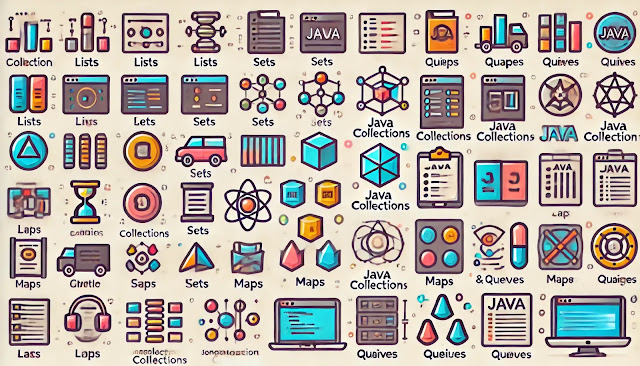Java for Beginners: What You Need to Know Before Your First Job
Java is one of the most widely used programming languages, popular for its platform independence, strong community support, and vast array of tools and frameworks. If you are preparing for your first job as a Java developer, there are some key concepts you must grasp to ensure you’re ready to hit the ground running. This guide will help you understand the essentials and prepare you for success in your career.
1. Understanding the Basics of Java
Before diving into advanced topics, start by learning the fundamental elements of Java:
- Syntax and Structure: The syntax of Java is simple, similar to other C-based languages. You should familiarize yourself with basic syntax elements, including data types (such as
int,float,boolean), operators (+,-,*,/), and control structures (if,else,switch,for,while). This foundational knowledge will enable you to write basic programs and solve common problems. - Java Development Environment: To code in Java, set up the Java Development Kit (JDK) and use an Integrated Development Environment (IDE) like IntelliJ IDEA, Eclipse, or NetBeans. Understanding how to set up your environment, compile, and run Java programs is a crucial step before advancing to complex topics.
2. Master Object-Oriented Programming (OOP)
Java is fundamentally an object-oriented language. Mastering its OOP concepts is essential for building robust and maintainable software. Here’s what you need to focus on:
- Classes and Objects: Everything in Java revolves around classes and objects. A class is a blueprint for objects, and objects are instances of classes. For example, a class
Carmight have properties likecolorandmodel, and methods likestart()andstop(). Creating objects from this class allows you to represent different cars in your program. - Inheritance: Java supports inheritance, allowing one class to inherit the properties and behaviors of another. This promotes code reuse and helps in building a hierarchical relationship between classes. Understanding
extendsand the use of superclasses and subclasses is critical. - Polymorphism: Polymorphism enables you to use a single interface or method in different forms. Method overloading (same method name, different parameters) and method overriding (modifying superclass methods in subclass) are key examples.
- Encapsulation: Encapsulation is about restricting direct access to some of an object's components and only allowing them through public methods. Learn how to use access modifiers (
private,public,protected) to control visibility and protect the integrity of your data. - Abstraction: Using abstract classes and interfaces allows you to define methods that must be implemented by subclasses. This promotes a contract-based design, ensuring that certain methods are provided in the implementing classes.
3. Core Java Concepts for Job-Ready Skills
Apart from OOP, you need to be familiar with Java's core features and utilities:
- Data Structures: Java provides built-in data structures like arrays,
ArrayList,HashMap,HashSet,LinkedList, and more. Knowing when and how to use these collections is key to solving complex problems efficiently. - Exception Handling: Mistakes happen, and so do errors. Understanding how to handle errors using
try,catch, andfinallyblocks is vital. You should also learn about custom exceptions and best practices for error handling to write robust code. - Java Input and Output (I/O): Working with input and output streams is an essential skill. Learn how to read from files, write to files, and handle user input through the console. Familiarize yourself with classes like
FileReader,BufferedReader,FileWriter, andPrintWriterfor various I/O operations. - Collections Framework: The Java Collections Framework provides a set of classes and interfaces for storing and processing groups of objects. Mastering lists (
List), sets (Set), maps (Map), and queues (Queue) will allow you to manage data efficiently in your programs. - Multithreading: Though it might seem advanced, understanding the basics of multithreading can give you an edge. Java provides
ThreadandRunnableclasses to create multi-threaded applications, which is crucial for building responsive applications that handle multiple tasks simultaneously.
4. Practical Java Skills to Master Before Your Job
- Building Simple Projects: Theory is important, but practice is key. Start by building small projects like a simple calculator, to-do list, or a basic management system. As you progress, try more complex projects like a file management tool or a basic CRUD application using JavaFX for a graphical user interface.
- APIs and Libraries: Java’s extensive libraries and APIs are one of its greatest strengths. Familiarize yourself with frequently used APIs like
java.util.*for data structures and utilities,java.io.*for I/O operations, andjava.time.*for date and time manipulation. - Database Connectivity (JDBC): Most applications interact with databases. Learn how to use Java Database Connectivity (JDBC) to connect to databases like MySQL, execute SQL queries, and handle result sets. This knowledge is fundamental for developing data-driven applications.
5. Preparing for Your First Java Developer Job
- Coding Best Practices: Writing clean, maintainable code is crucial for any developer. Follow Java naming conventions, use comments to document complex logic, and break down large methods into smaller, reusable pieces.
- Version Control with Git: Many companies use Git for version control. Learning Git commands (
add,commit,push,pull) and understanding how to use platforms like GitHub will help you collaborate on projects and maintain a history of your code changes. - Algorithmic Problem-Solving: Employers often test problem-solving skills during interviews. Practice basic algorithms and data structure problems on platforms like LeetCode, HackerRank, and CodeWars to build your problem-solving abilities.
- Understand Build Tools: Familiarize yourself with build tools like Maven or Gradle, which help manage project dependencies and automate the build process.
6. Learning Beyond the Basics
Once you’ve mastered these core concepts, explore Java's more advanced features and frameworks:
- Java 8 Features: Learn about functional programming in Java, including Lambda expressions, the Stream API, and the
Optionalclass for handling null values. - Spring Framework: Spring is one of the most popular frameworks for building enterprise applications. Start with Spring Boot to create stand-alone applications with ease.
- JavaFX for GUI Applications: For desktop application development, JavaFX provides a powerful platform for creating rich graphical user interfaces.


%20concepts%20such%20as%20classes,%20objects,%20inheritance,%20polymorphism,%20and%20encapsulation.%20T.webp)
%20with%20Java%20code,%20illustrating%20a%20real-life%20coding%20scenario%20with%20code%20lines%20and%20sy.webp)



0 Comments